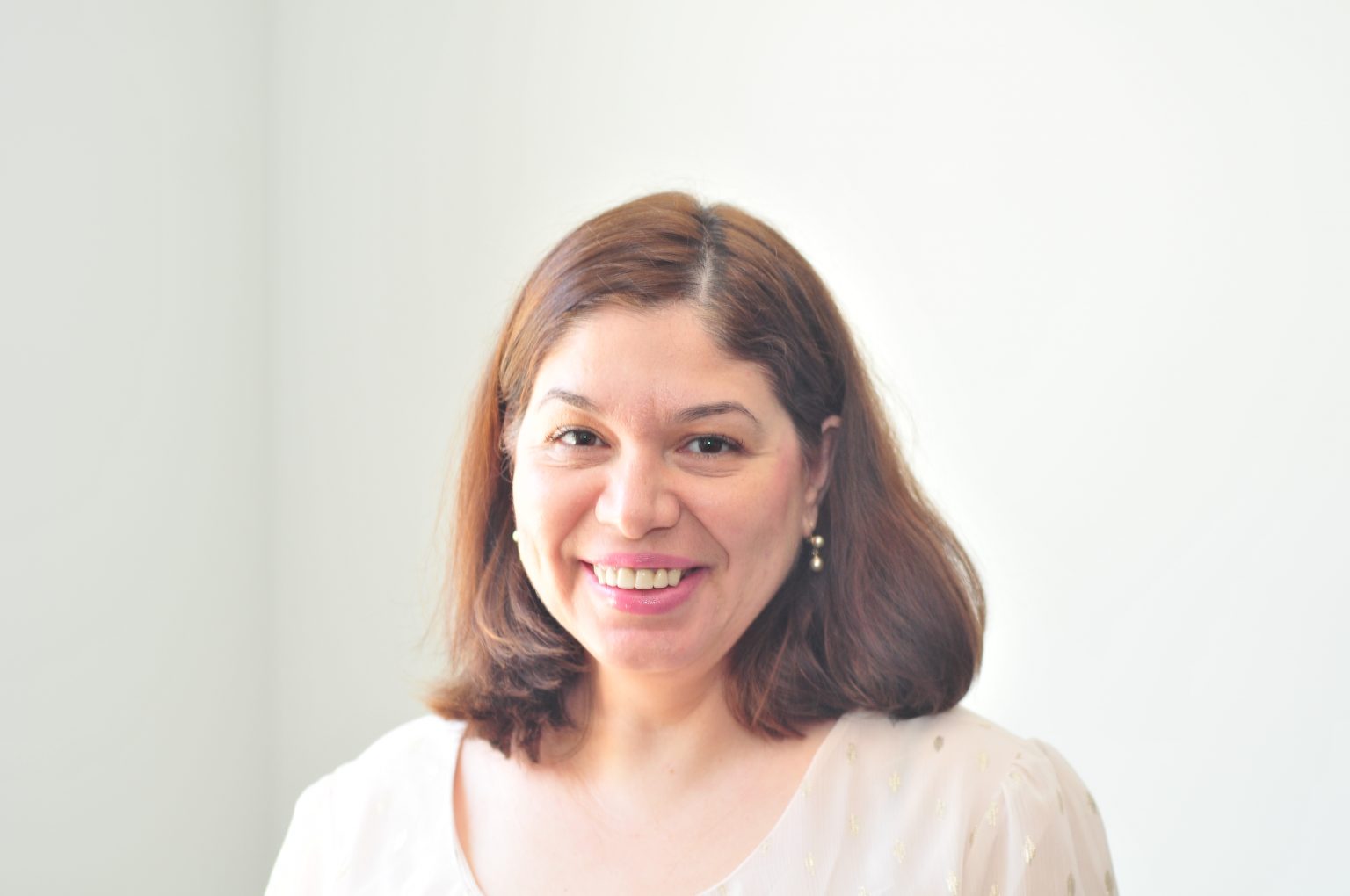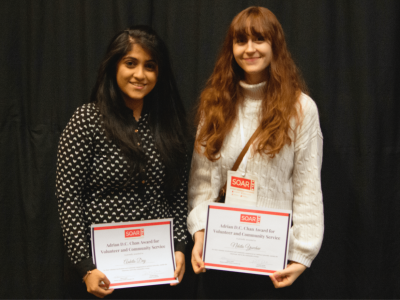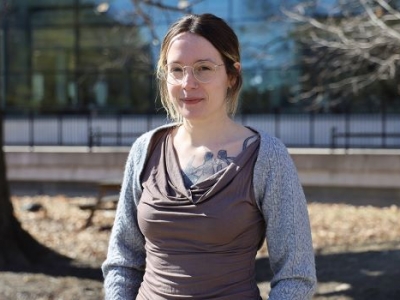Magda Georgescu has the inside scoop of being a graduate student at Carleton as she graduated with her Master of Social Work degree from Carleton in 2016.

Magda Georgescu
“My time as a graduate student at Carleton was a fantastic experience although my personal circumstances made it difficult, as a newcomer to Canada and a mom of a three-year-old at that time.”
She worked at Health and Counselling Services since 2016 with both undergrad and graduate students. Almost one third of her clients were grad students.
A pilot project that called for a dedicated Graduate Student Counsellor was such a success that the university decided to create a permanent position for 10 months each year.
Georgescu applied and got the job. “I had a good rapport with all of my grad students and I wanted to take on a new challenge.”
And because of her own background, she understands what her clients are experiencing.
“Graduate students are accomplished students who look to refine and master their skills,” notes Georgescu. “They are not dealing as much with self-doubt and low self esteem as undergrad students but more with impostor syndrome which is quite different. While self-doubt and low self esteem is related to what skills, knowledge and experience you have or do not have, imposter syndrome is a sense of intellectual fraudulence despite obvious evidence of success and achievement.”
Continues the counsellor: “Unlike undergrad students, who with occasional exceptions, are similar in age, graduate students are coming to graduate school from all walks of life and they can significantly differ in terms of struggles they deal with. It’s not uncommon for graduate students to juggle with multiple commitments such as parenting, part-time or full-time jobs and their program’s demands.”
Georgescu sees her counselling role as to help students re-center, reframe their narrative and consider their unique context.
“Graduate school is isolating in itself, but even more so during the pandemic,” says Georgescu. “Many students are struggling with the grief of missing experiences. Some came to Ottawa for a program, but they can’t connect with their peers or explore the city.”
She also notes that the measures put in place to stop the spread of COVID on campus have greatly impacted graduate students and their research.
Shares Georgescu: “Inability to access equipment and facilities, library closure, combined with extra time needed for online teaching and stress of working remotely have led to difficulties from delays in collecting data and see research output to renegotiations of grant extensions. Many graduate students are in the position of taking more time to complete their degrees.
One of the issues affecting all students during the pandemic is loneliness and stress.
“I suggest they pay attention to when they become overwhelmed and then try to connect with people and know that support is available for them at the clinic,” she advises. “They also need to allow themselves to accumulate positive experiences by adding pleasurable activities to their schedule, just like they do with schoolwork.”
She subscribes to a brief counselling method based on a solution-focused approach for a timely return of students to their academic responsibilities. “We do recognize the exceptional circumstances of these unprecedented times as well as individual differences and we are committed to supporting students with empathy and compassion. Thus we tailor the care plan to their specific needs.”
Resources
Domestic students can call 613-520-6674 to book an appointment with Georgescu or one of the other HSC counsellors. International students, if you are in Canada and paying health fees, you can also use counselling services
Please note that physicians can only see patients in Ontario due to licensing requirements.
Carleton offers virtual support services to all students through TAO Online Self-Help and Therapy.
This is a partnership with the federal government for people living in Canada and Canadians living abroad. After a short online assessment, individuals have access to:
- self-guided tools
- group coaching and community support
- 1:1 counselling
- immediate crisis support which can be accessed by texting WELLNESS to 741741
This is an Internet-based cognitive behavioral therapy (iCBT) program that is accessible from any device, any time. It is confidential, short-term, and virtual Cognitive Behavioural Therapy, with intermittent access to a psychotherapist, and for people aged 16 and over. This is also a partnership with the federal government for people living in Canada and Canadians living abroad.
- After you sign up, the first step is an assessment of your needs. You complete an online questionnaire and connect with a professional therapist by phone or video
- You then move through 10 structured modules, at your own pace, while your therapist monitors your progress. Each module contains activities, videos, and assignments to help you learn, develop and practice new skills
- There are scheduled check-ins along the way. You connect with your therapist by phone, video, or messaging. This is a free service.
International students residing in their home country can visit this website for a list of resources. ISSO organizes a series of workshops for international students. Subscribe to their newsletter to stay up-to-date and visit their events page.
HCS is also working on starting a non-thematic group for students to provide the opportunity to connect and share their experiences.
–With files from Karen Kelly.
Friday, December 4, 2020 in Research
Share: Twitter, Facebook




